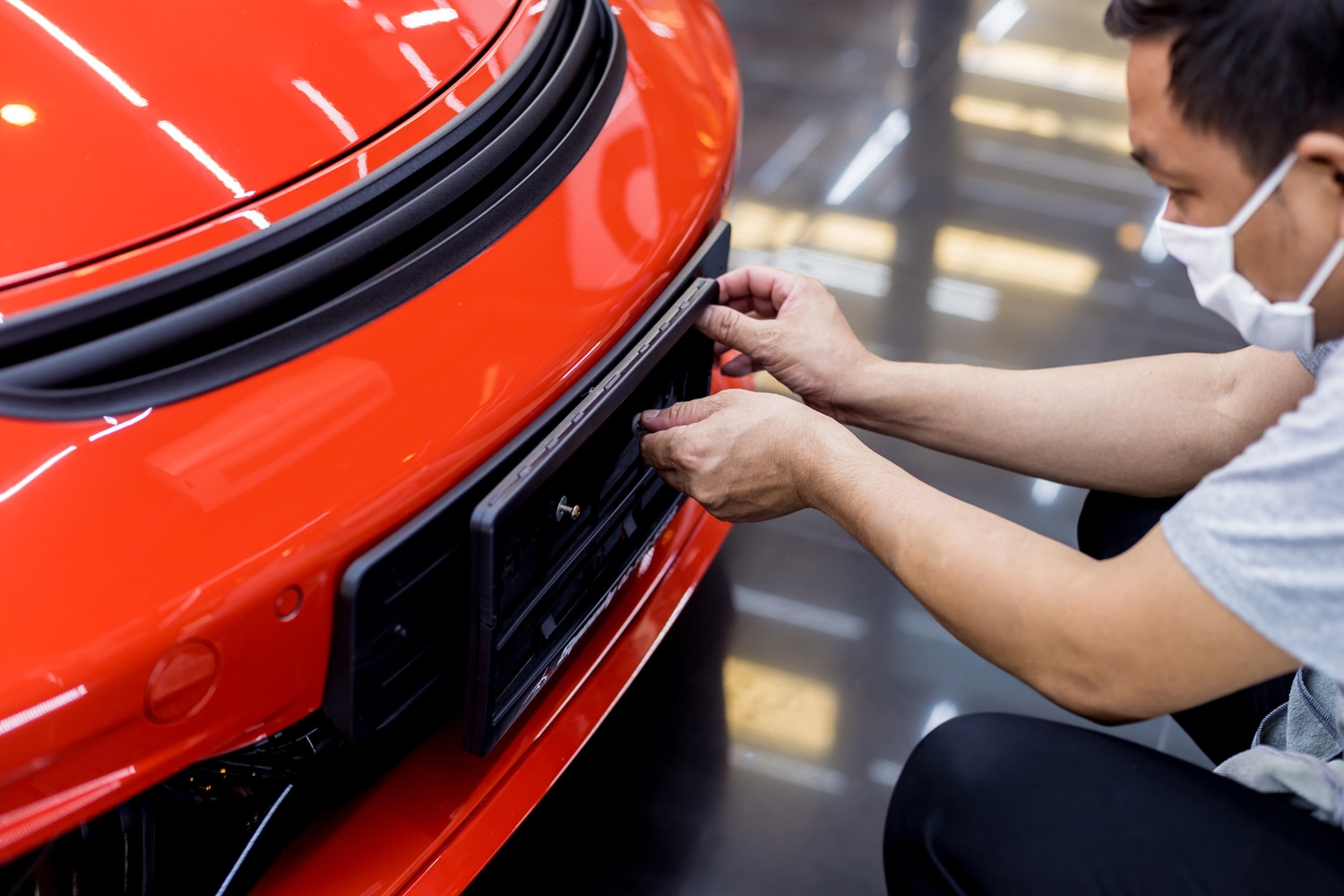Do Dealerships Register New or Used Cars For You?
Who registers your new, or used, car depends on a number of factors, including where you live and where the dealership is located.
 Shutterstock
Shutterstock
Test drive? Check. Negotiations? Check. Signed deal? Check.
All that's left now is for you to park that shiny new car in your driveway — with one catch. You'll need to register it, and now you may be wondering: "Do dealerships register cars for you?"
The answer is: Maybe. Just how much paperwork a car dealership can complete on your behalf varies by where you live, and in some cases it may even make a difference block by block.
While you will need to confirm with the car dealership just what your responsibilities will be to ensure that the car is legally registered, our guide can help you ask the right questions along the way.
What is a car registration?
Every state requires vehicles to be legally registered. This means that its taxes were paid and, in some areas, that it passed an emissions or safety inspection.
You need proof of registration to legally drive a car; typically this is accompanied by license plate or windshield stickers showing when your registration is up for renewal.
A registration is different from a title, which is a document that shows ownership of the vehicle but does not need annual renewal. A title is held by a financial institution until the loan is satisfied, at which time it is released to the vehicle's owner.
What can I expect the dealership to do?
Unless you're buying the first car they've ever sold, the dealership and its finance team have handled many, many car sales before. When you sign what seems like an endless pile of paperwork, somewhere in that documentation will be most — if not all — of what is needed to register the car.
In some states, the dealership will actually file paperwork on your behalf with your local motor vehicle registration office . This is the case in most instances, including states such as California, Texas, Illinois, and North Carolina. After this, your registration — and often your license plates — will typically come in the mail. In some instances, you may still have to visit a registration office to actually collect your plates.
In a few states, such as Colorado and Ohio, however, the dealer will send you home with an envelope of completed documentation to take to the Department (or Bureau) of Motor Vehicles (DMV or BMV). You can also request to do this yourself.
It may seem like the finance manager, business manager, or maybe even the salesperson is firing off a lot of information when you're eager to hit the road in your new ride. Don't be afraid to ask them to slow down and explain what you're signing, especially as it pertains to registering and titling the vehicle.
Does the dealership pay taxes and registration for me?
Typically, yes.
In most states, a dealership can collect payment from you and then pay the DMV or BMV directly. Usually, a dealership won't charge you for this convenience, aside from perhaps a documentation fee that theoretically offsets the cost involved in all of the paperwork you've filled out.
In some situations, however, a dealership may be able to collect some but not all of the money you will owe should you have to visit a registration office in person. In Colorado where city and county taxes are determined based on your home address, a dealership might be able to collect taxes due to the state but not those allocated to the city and county where you will register the vehicle.
What else do I need to ask?
The most important question to ask is: what else is left for me to do when I leave the dealership? The dealership may provide you with a checklist of any follow-up tasks that are now your responsibility.
Your car will be fitted with a temporary license plate, which allows you to legally drive it until either you register it yourself, or your license plates and/or registration arrive in the mail.
What other considerations are there?
If you are buying a car from another state, you will definitely want to ask the dealership just how much of the registration process they may be able to complete on your behalf. Many dealerships can complete registration in another state. This is especially common in metro areas such as Washington, D.C. or St. Louis, where local residents may live in one of several states.
If they are unable to file registration paperwork for you, a dealership may also offer a third-party service that can handle that task in your state. While this can be costly, it can also be a big time saver.
Written by humans.
Edited by humans.
 Andrew Ganz
Andrew GanzAndrew Ganz has had cars in his blood ever since he gnawed the paint off of a diecast model as a toddler. After growing up in Dallas, Texas, he earned a journalism degree, worked in public relations for two manufacturers, and served as an editor for a luxury-lifestyle print publication and several well-known automotive websites. In his free time, Andrew loves exploring the Rocky Mountains' best back roads—when he’s not browsing ads for his next car purchase.
Related articles
View more related articles